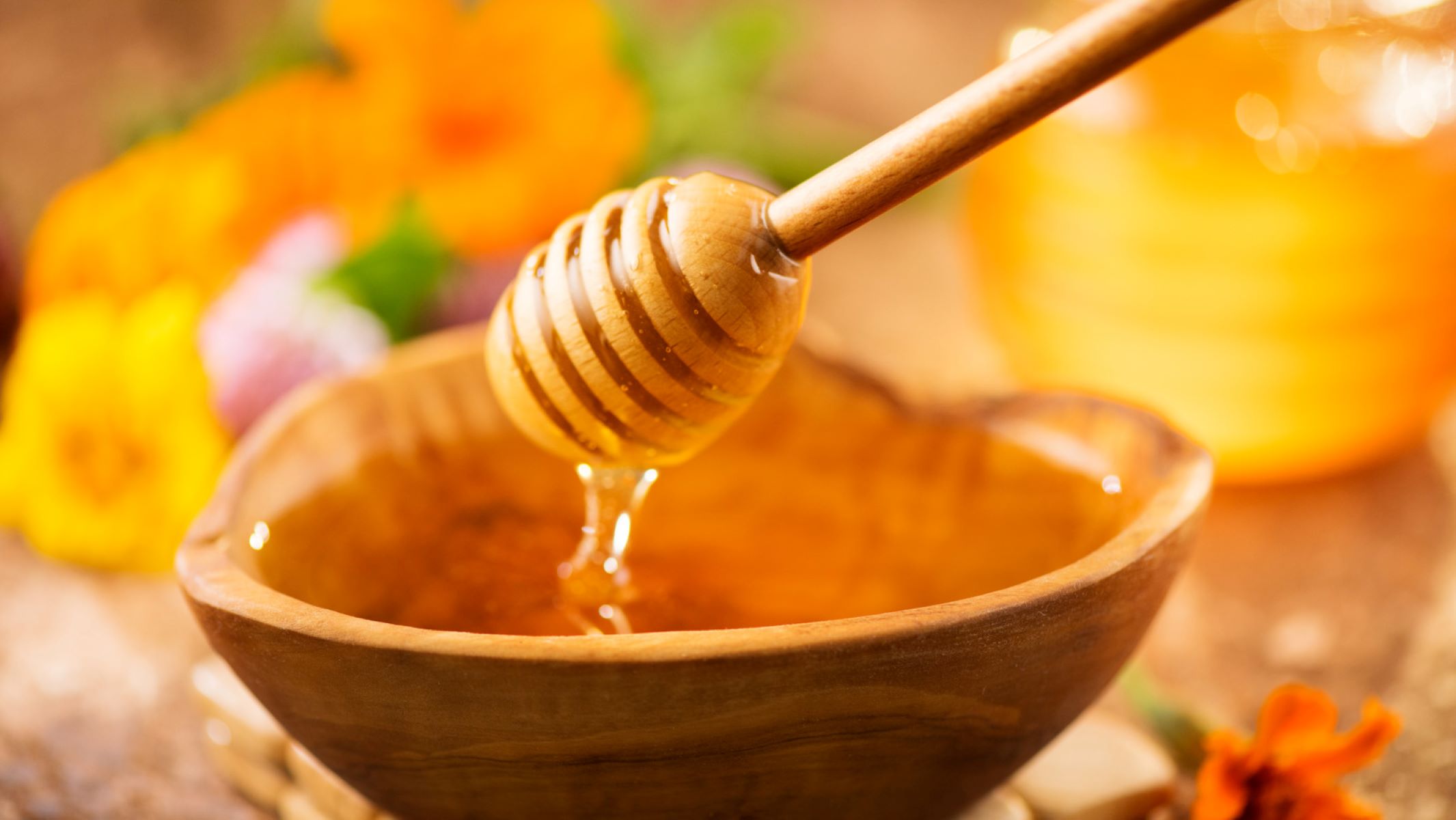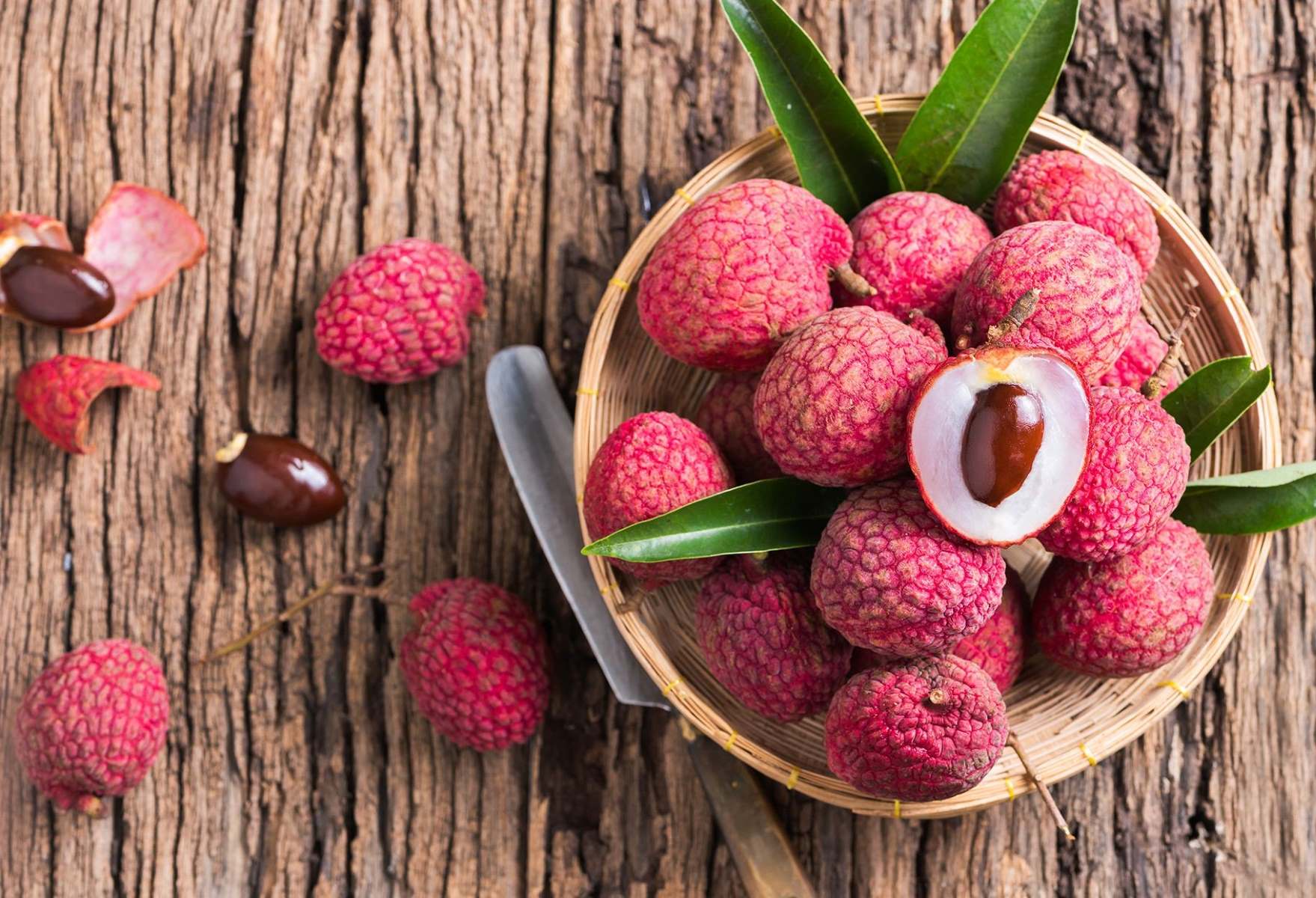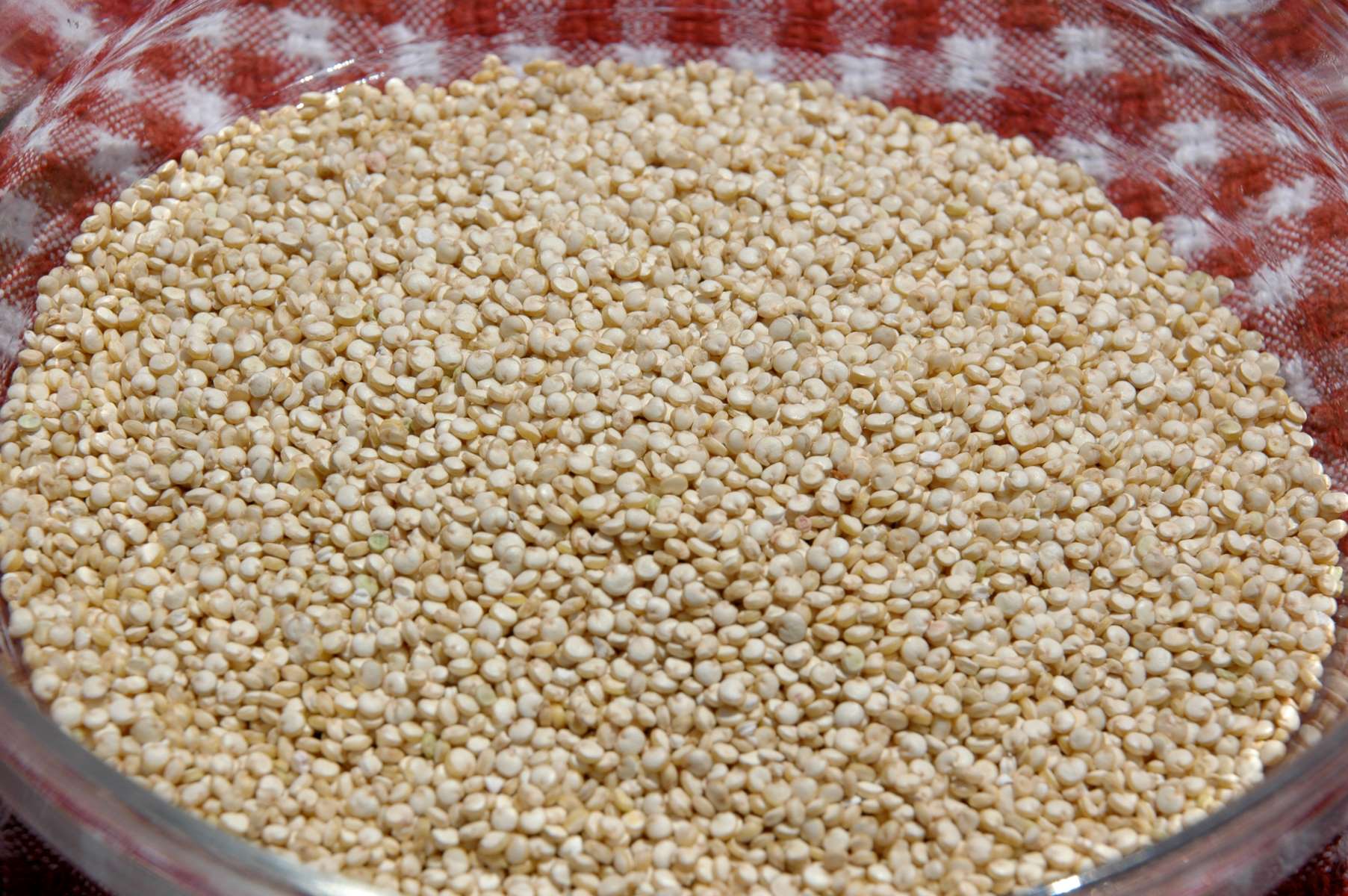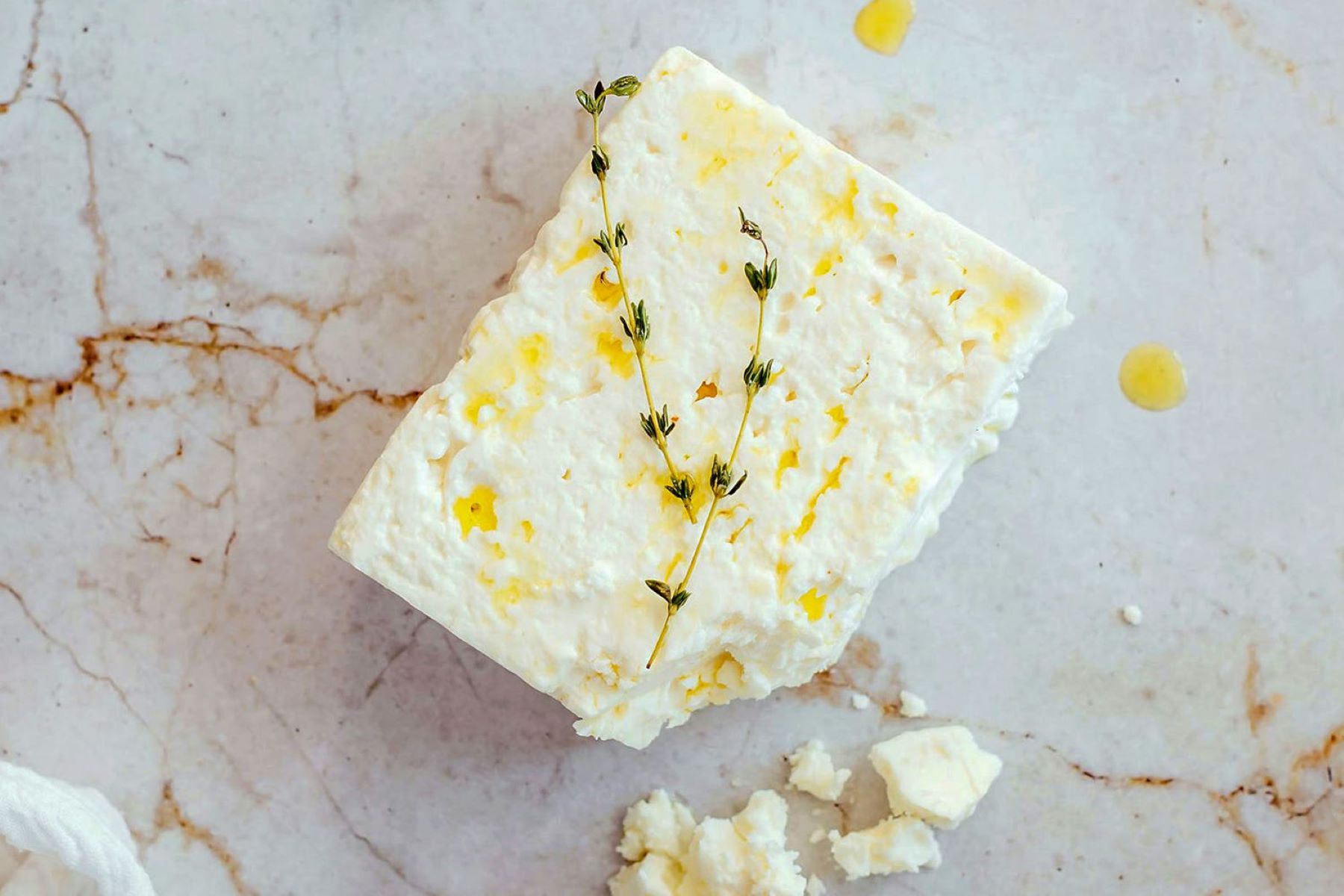Home>Food and Cooking>The Surprising And Delicious Taste Of Kombucha
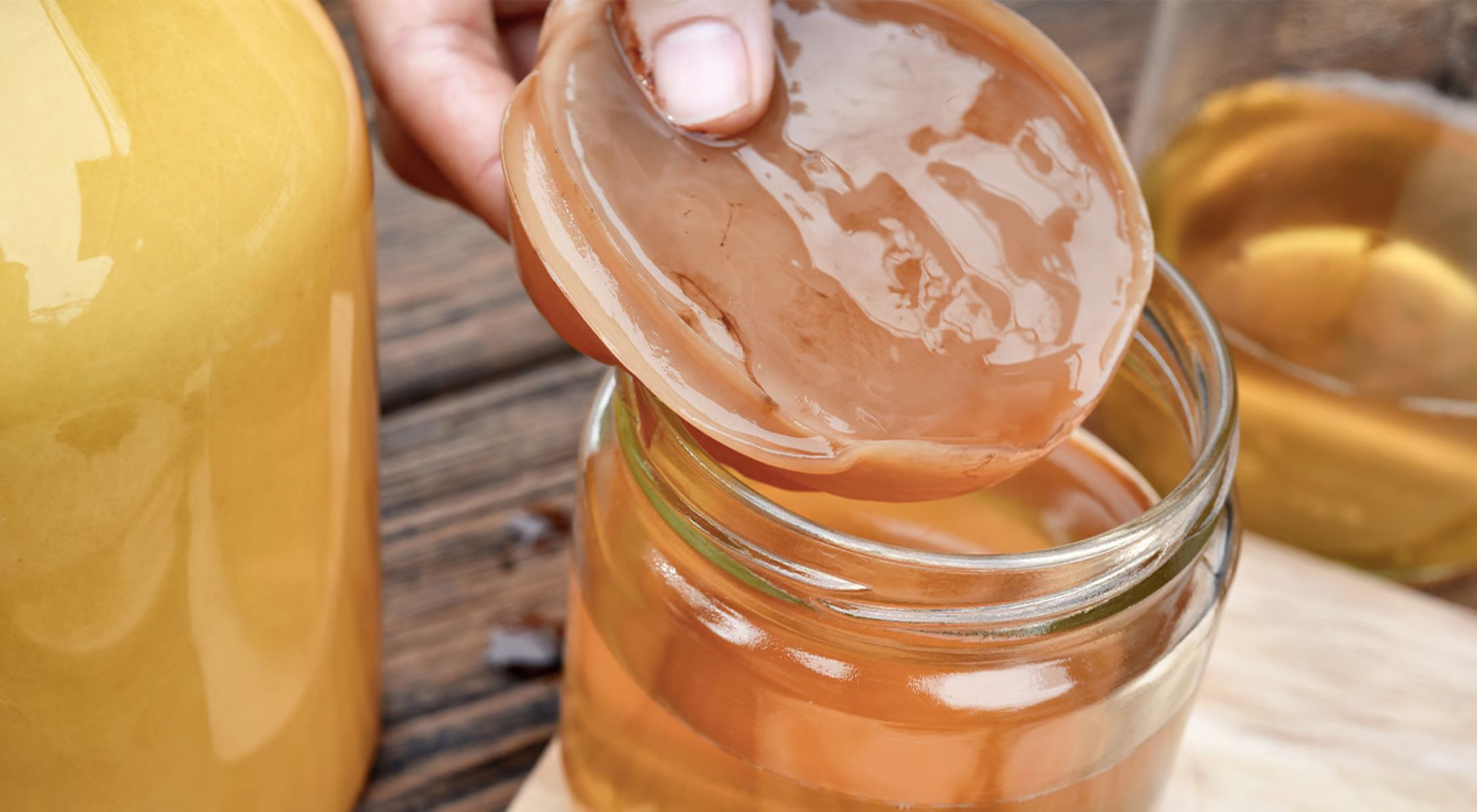

Food and Cooking
The Surprising And Delicious Taste Of Kombucha
Published: February 10, 2024
Discover the surprising and delicious taste of kombucha with our expert food and cooking tips. Learn how to make this trendy and flavorful beverage at home!
(Many of the links in this article redirect to a specific reviewed product. Your purchase of these products through affiliate links helps to generate commission for Regretless.com, at no extra cost. Learn more)
Table of Contents
Introduction
Kombucha, the ancient elixir with a tangy kick and effervescent allure, has been captivating taste buds and enthralling health enthusiasts for centuries. This fermented tea boasts a delightful complexity of flavors, ranging from sweet and tangy to slightly acidic, making it a unique and intriguing beverage. As we delve into the world of kombucha, we uncover its rich history, the fascinating fermentation process, and the myriad health benefits it offers. Moreover, we discover the surprising and delightful taste that has garnered a devoted following of kombucha aficionados.
This article aims to unravel the mystique surrounding kombucha, shedding light on its origins and evolution, as well as its potential to tantalize the palate and invigorate the body. From its humble beginnings to its modern resurgence, kombucha has transcended generations, leaving an indelible mark on the world of fermented beverages. Join us on a journey through the captivating realm of kombucha as we explore its intriguing flavors, healthful attributes, and the simple joy of crafting your own batch of this enchanting elixir.
What is Kombucha?
Kombucha is a fermented tea beverage that has been enjoyed for centuries due to its unique taste and potential health benefits. It is created through the fermentation of sweetened tea with the help of a symbiotic culture of bacteria and yeast (SCOBY). This process results in a slightly effervescent drink with a tangy flavor profile that sets it apart from other beverages.
The key ingredients in kombucha include black or green tea, sugar, and the SCOBY, which is a rubbery, pancake-like culture comprising various strains of bacteria and yeast. When combined and left to ferment for a period of time, the SCOBY metabolizes the sugars in the tea, producing organic acids, carbonation, and a range of flavorful compounds.
Kombucha is often lauded for its probiotic content, which can contribute to gut health and overall well-being. The fermentation process also yields B vitamins, enzymes, and antioxidants, further enhancing its nutritional value.
In addition to its potential health benefits, kombucha offers a wide array of flavor profiles, ranging from mildly sweet to pleasantly tart, depending on the type of tea used and the length of the fermentation period. This diversity of flavors makes kombucha a versatile and intriguing beverage that appeals to a broad audience.
The allure of kombucha lies not only in its taste and potential health benefits but also in its adaptability. It can be enjoyed as a standalone beverage, used as a mixer in cocktails, or incorporated into flavorful culinary creations.
Overall, kombucha is a captivating and multifaceted beverage with a rich history and a promising future. Its distinct characteristics and potential healthful properties make it a beverage worth exploring and savoring.
The History of Kombucha
The origins of kombucha can be traced back thousands of years to ancient China, where it was revered as the "Tea of Immortality" for its purported health-enhancing properties. Legend has it that this fermented tea was introduced to the Chinese Emperor Qin Shi Huangdi by a physician named Kombu, hence the name "kombucha." The elixir's reputation for promoting vitality and longevity quickly spread throughout East Asia, becoming a cherished staple in traditional medicine and cultural practices.
Over the centuries, kombucha made its way across continents, reaching Russia, Eastern Europe, and eventually gaining popularity in Western cultures. Each region embraced kombucha with its own unique spin, incorporating local ingredients and traditions into the fermentation process. This widespread adoption led to a diverse array of flavor profiles and brewing techniques, further enriching the tapestry of kombucha's history.
During the early 20th century, kombucha experienced a resurgence in popularity, particularly in Europe, where it was touted for its potential health benefits. Its consumption spread to other parts of the world, including the United States, where it garnered a dedicated following among health-conscious individuals and enthusiasts of fermented foods and beverages.
In recent decades, kombucha has undergone a remarkable transformation, evolving from a niche health tonic to a mainstream beverage enjoyed by people from all walks of life. Its resurgence can be attributed to a growing interest in probiotics, functional foods, and holistic wellness, as well as an increasing appreciation for artisanal and handcrafted products.
Today, kombucha continues to captivate the palates of consumers worldwide, with an ever-expanding array of flavors and variations available in supermarkets, health food stores, and specialty beverage shops. Its rich history, steeped in tradition and folklore, serves as a testament to its enduring appeal and cultural significance.
As kombucha enthusiasts rediscover and reinterpret ancient brewing methods and flavor combinations, the legacy of this revered elixir continues to thrive, transcending time and borders. Whether enjoyed for its potential health benefits, diverse flavors, or simply as a refreshing beverage, kombucha's journey through history reflects its enduring allure and adaptability in an ever-changing world.
The Fermentation Process
The fermentation process is the magical alchemy that transforms a simple combination of tea, sugar, and a symbiotic culture of bacteria and yeast (SCOBY) into the complex and effervescent elixir known as kombucha. This intricate transformation involves a series of biochemical reactions orchestrated by the diverse microbial community within the SCOBY, resulting in the creation of organic acids, carbonation, and a spectrum of flavorful compounds.
To initiate the fermentation process, a sweetened tea base, typically made from black or green tea, serves as the nourishing medium for the SCOBY. The addition of sugar provides the necessary fuel for the microbial organisms to thrive and metabolize, kickstarting the fermentation journey. Once the SCOBY is introduced to the sweetened tea, it begins its transformative work, breaking down the sugars and converting them into a myriad of beneficial compounds.
Over the course of the fermentation period, which typically ranges from 7 to 14 days, the SCOBY undergoes a remarkable metamorphosis. The yeast within the SCOBY first metabolize the sugars, producing alcohol as a byproduct. This alcohol is then further metabolized by the bacteria, yielding organic acids such as acetic acid, lactic acid, and gluconic acid. These organic acids impart the characteristic tangy and slightly acidic flavor profile that distinguishes kombucha.
Simultaneously, the fermentation process generates carbonation, lending a delightful effervescence to the finished beverage. This natural carbonation adds a refreshing and lively quality to kombucha, elevating the drinking experience and contributing to its overall appeal.
The duration of the fermentation process plays a crucial role in shaping the flavor profile of the kombucha. A shorter fermentation period yields a milder, slightly sweet brew, while an extended fermentation period results in a more pronounced tanginess and acidity. This diversity of flavor profiles allows for a wide range of taste experiences, catering to various preferences and palates.
As the fermentation process unfolds, the SCOBY orchestrates a symphony of biochemical transformations, culminating in the creation of a vibrant and complex beverage that embodies the essence of kombucha. The artistry of fermentation, guided by the SCOBY's microbial community, infuses kombucha with its distinctive flavors, effervescence, and potential healthful properties, making it a captivating and multifaceted elixir that continues to enthrall enthusiasts worldwide.
The Health Benefits of Kombucha
Kombucha, beyond its tantalizing taste and effervescent charm, offers a spectrum of potential health benefits that have piqued the interest of wellness enthusiasts and health-conscious individuals. While scientific research on kombucha's specific health effects is ongoing, several attributes of this fermented elixir make it a compelling addition to a balanced lifestyle.
Probiotic Potential:
One of the most celebrated aspects of kombucha is its probiotic content. During the fermentation process, beneficial bacteria and yeasts flourish within the SCOBY, resulting in a probiotic-rich beverage. Probiotics are known for their potential to support gut health by promoting a balanced microbiome, aiding in digestion, and bolstering the body's natural defenses. By introducing probiotics into the digestive system, kombucha may contribute to overall well-being and vitality.
Antioxidant Properties:
The fermentation of tea to create kombucha yields a bevvy of antioxidants, including polyphenols and flavonoids. These compounds have been linked to a range of potential health benefits, such as reducing inflammation, combating oxidative stress, and supporting cellular health. Antioxidants play a vital role in promoting overall wellness and may contribute to the body's resilience against environmental and internal stressors.
Detoxification Support:
Kombucha contains various organic acids, including acetic acid and glucuronic acid, which are thought to aid in the body's natural detoxification processes. These acids may assist in the elimination of toxins and metabolic byproducts, potentially supporting liver function and overall detoxification pathways within the body.
Potential Immune Support:
The presence of beneficial bacteria in kombucha, coupled with its antioxidant content, may confer potential immune-supporting properties. A balanced gut microbiome and robust antioxidant defenses are integral to a well-functioning immune system, and the consumption of kombucha may play a role in fortifying these essential elements of immune health.
Nutrient Contribution:
In addition to its microbial and antioxidant attributes, kombucha provides a source of B vitamins, enzymes, and organic acids, which may contribute to overall nutritional intake. B vitamins are essential for energy production and metabolic processes, while enzymes aid in digestion and nutrient absorption. The diverse array of nutrients present in kombucha underscores its potential as a multifaceted beverage that offers more than just a refreshing taste.
While the potential health benefits of kombucha are intriguing, it's important to consume this beverage in moderation and as part of a balanced diet. As with any dietary component, individual responses may vary, and it's advisable to consult with a healthcare professional regarding the incorporation of kombucha into one's wellness routine, particularly for individuals with specific health concerns or dietary considerations.
In summary, kombucha's probiotic potential, antioxidant properties, detoxification support, potential immune-boosting effects, and nutrient contribution collectively position it as a captivating beverage with multifaceted health implications. Embracing kombucha as part of a holistic approach to well-being may offer a delightful avenue to explore the potential synergy between taste and health, inviting enthusiasts to savor this effervescent elixir with a renewed appreciation for its wellness-enhancing qualities.
The Surprising Taste of Kombucha
The taste of kombucha is a delightful revelation that defies categorization. It embodies a harmonious blend of sweet, tangy, and slightly acidic notes, creating a multidimensional flavor profile that intrigues the palate. The initial sip introduces a subtle sweetness, reminiscent of the tea and sugar from which it is crafted, followed by a gentle tanginess that dances across the taste buds. As the effervescence tingles on the tongue, a nuanced acidity emerges, adding depth and complexity to the overall experience.
What makes kombucha's taste truly surprising is its ability to evolve and unfold with each sip. The interplay of flavors, influenced by the type of tea used and the duration of fermentation, results in a spectrum of taste experiences. From delicately floral and mildly sweet to robustly tart and invigorating, kombucha's diverse flavor profiles cater to a myriad of preferences, inviting enthusiasts to explore and savor its captivating nuances.
Each batch of kombucha carries a unique imprint of its fermentation journey, reflecting the interplay of microbial alchemy and the artistry of the brewing process. The resulting elixir is a testament to the transformative power of fermentation, yielding a beverage that transcends the ordinary and embraces the extraordinary.
The surprising taste of kombucha extends beyond its flavor alone. Its effervescent nature adds a playful liveliness to the drinking experience, elevating it to a refreshing and invigorating indulgence. The natural carbonation, coupled with its vibrant flavor palette, makes kombucha a beverage that delights the senses and leaves a lasting impression.
As kombucha continues to captivate enthusiasts and newcomers alike, its surprising taste remains a hallmark of its enduring appeal. Whether enjoyed as a standalone refreshment or incorporated into inventive culinary creations, the taste of kombucha is an enchanting symphony that resonates with those who seek a beverage that transcends convention and embodies the unexpected.
In essence, the surprising taste of kombucha is a delightful fusion of sweet, tangy, and acidic notes, interwoven with effervescence and complexity. It is a taste that defies expectations, invites exploration, and leaves an indelible impression, making kombucha a captivating and multifaceted beverage that continues to enchant and inspire.
Making Your Own Kombucha
Embarking on the journey of crafting your own kombucha is a rewarding and empowering endeavor that allows you to become a part of the rich tradition of fermentation. Creating homemade kombucha involves a series of simple yet transformative steps, culminating in the production of a vibrant and flavorful elixir that reflects your unique touch and brewing style.
The Brewing Process
To begin the process of making kombucha at home, you will need a few essential components:
-
Ingredients: High-quality black or green tea, granulated sugar, filtered water, and a mature SCOBY (obtained from a reliable source or grown from a previous batch of kombucha) serve as the foundation for your homemade brew.
-
Equipment: A large glass vessel for fermentation, breathable cloth or coffee filter to cover the vessel, and glass bottles for bottling the finished kombucha are essential tools for the brewing process.
Step-by-Step Guide
-
Prepare the Sweetened Tea: Boil water and steep the tea, then dissolve the sugar to create a sweetened tea base. Once cooled, transfer the tea to the fermentation vessel.
-
Introduce the SCOBY: Gently place the SCOBY into the sweetened tea, along with a portion of mature kombucha from a previous batch. This kickstarts the fermentation process by inoculating the tea with beneficial microbes.
-
Fermentation: Cover the vessel with a breathable cloth or coffee filter and secure it with a rubber band. Allow the kombucha to ferment at room temperature, away from direct sunlight, for 7 to 14 days, depending on your desired flavor profile.
-
Taste and Test: Throughout the fermentation period, periodically taste the kombucha to gauge its flavor development. Once it reaches the desired balance of sweetness and acidity, it is ready for bottling.
-
Bottling and Carbonation: Carefully decant the kombucha into glass bottles, leaving a small airspace at the top. Seal the bottles and allow them to carbonate at room temperature for an additional 2 to 3 days, or until the desired level of carbonation is achieved.
-
Enjoy and Experiment: Once carbonated, refrigerate the kombucha to slow down the fermentation process and chill it for optimal enjoyment. From here, the possibilities are endless – experiment with flavor infusions, such as fruit or herbs, to create unique variations of homemade kombucha.
By embracing the art of homebrewing, you not only gain a deeper appreciation for the craft of fermentation but also have the opportunity to tailor the flavor and characteristics of your kombucha to your preferences. The act of making your own kombucha becomes a creative expression, inviting you to explore the nuances of fermentation and savor the delightful results of your brewing endeavors.
In summary, making your own kombucha is a fulfilling and enriching experience that allows you to engage with the time-honored tradition of fermentation, fostering a deeper connection to the art and science of crafting this captivating elixir.
Conclusion
In conclusion, the world of kombucha is a tapestry woven with history, flavor, and potential health benefits, inviting enthusiasts to embark on a journey of discovery and indulgence. From its ancient origins as the "Tea of Immortality" in China to its modern resurgence as a beloved beverage, kombucha has transcended time and borders, leaving an indelible mark on the realm of fermented elixirs.
The allure of kombucha lies not only in its surprising and delightful taste but also in its adaptability and potential to invigorate the body. The fermentation process, orchestrated by the symbiotic culture of bacteria and yeast, yields a complex and effervescent beverage that embodies the transformative power of microbial alchemy. Each batch of kombucha carries a unique imprint of its fermentation journey, reflecting the interplay of artistry and science that defines the craft of brewing this enchanting elixir.
Moreover, the potential health benefits of kombucha, including its probiotic potential, antioxidant properties, detoxification support, immune-boosting effects, and nutrient contribution, position it as a multifaceted beverage with wellness-enhancing qualities. Embracing kombucha as part of a holistic approach to well-being offers a delightful avenue to explore the potential synergy between taste and health, inviting enthusiasts to savor this effervescent elixir with a renewed appreciation for its multifaceted attributes.
Crafting your own batch of kombucha adds a layer of creativity and personalization to the experience, allowing you to become a part of the rich tradition of fermentation. The act of homebrewing not only fosters a deeper connection to the craft of fermentation but also empowers you to tailor the flavor and characteristics of your kombucha to your preferences, opening the door to a realm of experimentation and artisanal expression.
As kombucha continues to captivate enthusiasts and newcomers alike, its surprising taste remains a hallmark of its enduring appeal. Whether enjoyed for its potential health benefits, diverse flavors, or simply as a refreshing beverage, kombucha's journey through history reflects its enduring allure and adaptability in an ever-changing world.
In essence, kombucha is more than a beverage; it is a testament to the artistry of fermentation, the richness of tradition, and the potential for delightful indulgence. Its multifaceted nature, encompassing taste, wellness, and artisanal craft, positions it as a captivating elixir that continues to enchant and inspire, inviting enthusiasts to savor the delightful symphony of flavors and wellness-enhancing attributes that define this timeless elixir.
